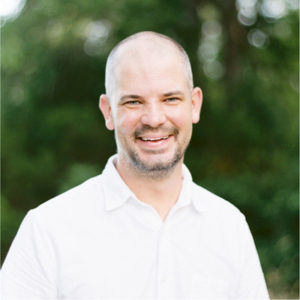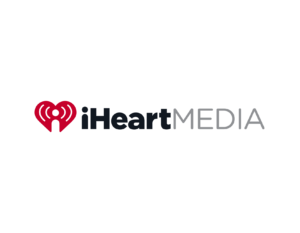Episode 153: Crowd Health is Go Fund Me for Health Care on Nitro with CEO Andy Schoonover
The Paradocs Podcast with Eric Larson
Release Date: 12/03/2021
 Episode 154: Rethinking Vaccine Mandates and the Omicron Variant with Dr. Monica Gandhi
Episode 154: Rethinking Vaccine Mandates and the Omicron Variant with Dr. Monica Gandhi
The Paradocs Podcast with Eric Larson
Vaccine mandates, mask mandates, boosters, and variants have been a constant source of debate and controversy with the pandemic. My guest today is Dr. Monica Gandhi, an expert in immunology and infectious disease who runs the HIV clinic at UCSF. She has been a fairly prominent voice in support of the mask and vaccine mandates in her home state of California and city of San Francisco. She returns from her visit in June for SARS-CoV-2 in which she guessed that it wouldn't evade the vaccine or prior infection (spoiler alert: she was right). Do Vaccine Mandates Make Sense? Dr. Gandhi is...
info_outline Episode 153: Crowd Health is Go Fund Me for Health Care on Nitro with CEO Andy Schoonover
Episode 153: Crowd Health is Go Fund Me for Health Care on Nitro with CEO Andy Schoonover
The Paradocs Podcast with Eric Larson
What happens when you take Go Fund Me and put it into an ecosystem of likeminded folks who want to build a community to care for each other's health care expenses? You get which draws upon some of the concepts of crowd funding for one time health care expenses within its community. By taking people from all over the country and putting them into a community where there are expectations of caring for others, Crowd Health offers a solution to paying for health care expenses without breaking the bank. Is Crowd Health Insurance? If you've been paying attention to the US health care...
info_outline Episode 152: The COVID Drawdown
Episode 152: The COVID Drawdown
The Paradocs Podcast with Eric Larson
Today we are going to discuss the COVID drawdown. Essentially, this is what must inevitably happen for us to return to lives of normalcy where we have typical interactions with others at family gatherings, sporting events, concerts, and business meetings. Unless we are prepared to radically change the way we live our lives and choose isolation (which probably has far greater physical and mental health detriments) then we have to consider how the drawdown occurs and what conditions ned to be present for it to happen. What HaS TO HAPPEN FOR THE DRAWDOWN TO OCCUR? We've talked to...
info_outline Episode 151: Health Care for Those Who Don't Earn High Wages with Dr. David Berg
Episode 151: Health Care for Those Who Don't Earn High Wages with Dr. David Berg
The Paradocs Podcast with Eric Larson
One of the scariest times for many workers is being presented with a bill for medical services. Even if they have insurance "coverage", the deductible or co-pay might be more than they can afford. For hourly workers in entry level jobs or low skilled positions, medical bankruptcy is a real fear. While barely making ends meet an additional bill for an ER visit or doctor's office stop can send you to collections and destroy your credit. Unfortunately, a lot of Americans are in this exact spot as they earn a living working these low paying jobs but have little medical security even if...
info_outline Episode 150: Make Sure Your Health Insurance Broker is Working for You and not the Insurance Company with David Contorno.
Episode 150: Make Sure Your Health Insurance Broker is Working for You and not the Insurance Company with David Contorno.
The Paradocs Podcast with Eric Larson
When you run a business, one person you usually meet and hire is a health insurance broker. In theory, these brokers work with the employers to secure the best deals for health insurance to meet the company's health care objectives. However, in practice, the brokers serve as a sales force for the insurance companies who lavish them with bonuses, trips, and gifts. The seedy underbelly of the health insurance broker industry is that they are really not working to save money or get deals for their clients - the checks are written by the insurance carriers and that's who they answer to. Who do...
info_outline Episode 149: Is Asymptomatic Spread of SARS-CoV-2 a Thing? with Daniel Halperin, PhD
Episode 149: Is Asymptomatic Spread of SARS-CoV-2 a Thing? with Daniel Halperin, PhD
The Paradocs Podcast with Eric Larson
Not only has the COVID pandemic politicized our country - it has led to a lot of misinformation and a shutdown of communication. For instance, is there really asymptomatic spread of COVID? Or just pre-symptomatic and symptomatic spread? That might seem like splitting hairs but it can have a profound effect on policy for quarantining and testing. We've talked about this before on the show as well as general discussions on COVID policy which can be found , , and . 12 Myths and 12 Facts About COVID-19 If there is one certainty during this confusing pandemic it is that there are plenty of...
info_outline Episode 148: Urgent Care as Primary Care with Dr. Juliet Breeze of Next Level Medical
Episode 148: Urgent Care as Primary Care with Dr. Juliet Breeze of Next Level Medical
The Paradocs Podcast with Eric Larson
There are a lot of urgent care clinics all over the country. But few of them, to my knowledge, also operate as regular primary care clinics. But that is exactly what is happening today in the Houston, Texas area with the emergence of Next Level Medical. If you think about it, it makes perfect sense to leverage all the facilities needed for a primary care clinic - exam rooms, physicians, etc. and use it to deliver regular and sometimes non-urgent care. We've discussed before that lower the cost of care with transparency so this seems like the next logical step with urgent care. We...
info_outline Episode 147: Has the Pandemic Led to Infants Losing IQ? - with Sean Deoni, PhD
Episode 147: Has the Pandemic Led to Infants Losing IQ? - with Sean Deoni, PhD
The Paradocs Podcast with Eric Larson
The COVID pandemic has brought on all sorts of changes to the way we live our lives. From wearing masks, working from home, stay at home orders, and restrictions on social interactions, the virus has caused untold disruption to the way our society functions. Although the changes COVID has brought to our schools and the lives of our school age children, it is perhaps less appreciated what changes have occurred for our infants. It is a well known fact that our environment and meaningful stimulation is necessary for normal intelligence and brain development. Infants are completely...
info_outline Episode 146: Explaining COVID in 11 Minutes with Dr. Eric Larson
Episode 146: Explaining COVID in 11 Minutes with Dr. Eric Larson
The Paradocs Podcast with Eric Larson
Imagine yourself in California at a clearing in a large forest. And it’s on fire. There are three groups of people standing before you. A large group is screaming and running around pointing at the fire. They’re yelling that we need to do something, anything we can to stop the fire. Meanwhile, there is another group (not as large) with their backs to the fire. They are mocking and ridiculing the group running around panicking. They tell them to calm down and to stop ordering people around. They insist there isn’t anything wrong at all. Of course, the largest group of people are...
info_outline Episode 145: Surgery without Insurance with Dr. Keith Smith
Episode 145: Surgery without Insurance with Dr. Keith Smith
The Paradocs Podcast with Eric Larson
A lot has happened since we last met with Dr. Keith Smith from the back in 2018. . We also spoke about how the system was rigged to enrich the hospital systems, insurance carriers, and PBMs (what's new right?). So what's happened since then and how has the center done with the pandemic? Is the Surgery Center of Oklahoma Thriving or Just Surviving? Not surprisingly, Dr. Smith says that the center is doing just fine and has increased its market share from other states. Additionally, the international community from Canada is now being allowed to come back into the US for their...
info_outlineWhat happens when you take Go Fund Me and put it into an ecosystem of likeminded folks who want to build a community to care for each other's health care expenses? You get Crowd Health which draws upon some of the concepts of crowd funding for one time health care expenses within its community. By taking people from all over the country and putting them into a community where there are expectations of caring for others, Crowd Health offers a solution to paying for health care expenses without breaking the bank.
Is Crowd Health Insurance?
If you've been paying attention to the US health care space for the last, well, forever, then you know that it is expensive and keeps getting more so. People stay at jobs they don't like just to keep their health care coverage which is often not very good anyway. However, for those who are self employed or with a very small business, it seems their only option is to go out onto the open ACA exchange and grab a lousy and expensive plan that hardly covers anything.
Crowd Health offers an alternative to paying for health insurance. Although it definitely isn't insurance since you are asked to pay into your own bank account each month to be prepared to pay others' health expenses. There is also no guarantee that your expenses will be paid as you often have with a traditional insurance policy. However, oftentimes even with traditional insurance you don't get everything covered and have to cover up to the deductible and everything over until you hit your out of pocket maximum. And that's before considering the inflated prices paid by insurance companies.
Is Crowd Health a Health Sharing Ministry?
The answer to this question is more complicated. In short, yes and no. We discussed sharing ministries in my previous ventures with Samaritans and an episode with Liberty Health Share. Basically, in a sharing ministry you send your monthly 'premium' to someone in the community. If you have a health expense, you submit a claim after you pay the bill and people will then mail you checks to cover the expense. The down side of this process is that the delay to getting paid can be fairly long (months) meaning you will have to have the funds to cover the bill that might be fairly large. And people don't often have that much money sitting around in the bank.
How Does Crowd Health Work?
CEO Andy Schoonover describes the fairly simple mechanics of Crowd Health. You take a group of like minded people who want an alternative to the traditional way of paying for health care. Then you have them commit to contribute a small amount to run the overhead of the community which helps pay for the technology and people tasked with negotiating with local hospitals, etc. and assisting patients with their navigation through the health care space. Community members pay the first $500 of a health care event and then request the community fund the remaining amount. Each community member then has the option of helping out or not. Each member carries a social credit score determined by how often they 'help', ask for help, or shop around for less expensive health care options.

 Andy Schoonover is the CEO of Crowd Health, an alternative means of paying for health expenses that isn't insurance and isn't exactly a sharing ministry either. It's sort of highly efficient Go Fund Me.
Andy Schoonover is the CEO of Crowd Health, an alternative means of paying for health expenses that isn't insurance and isn't exactly a sharing ministry either. It's sort of highly efficient Go Fund Me. 
